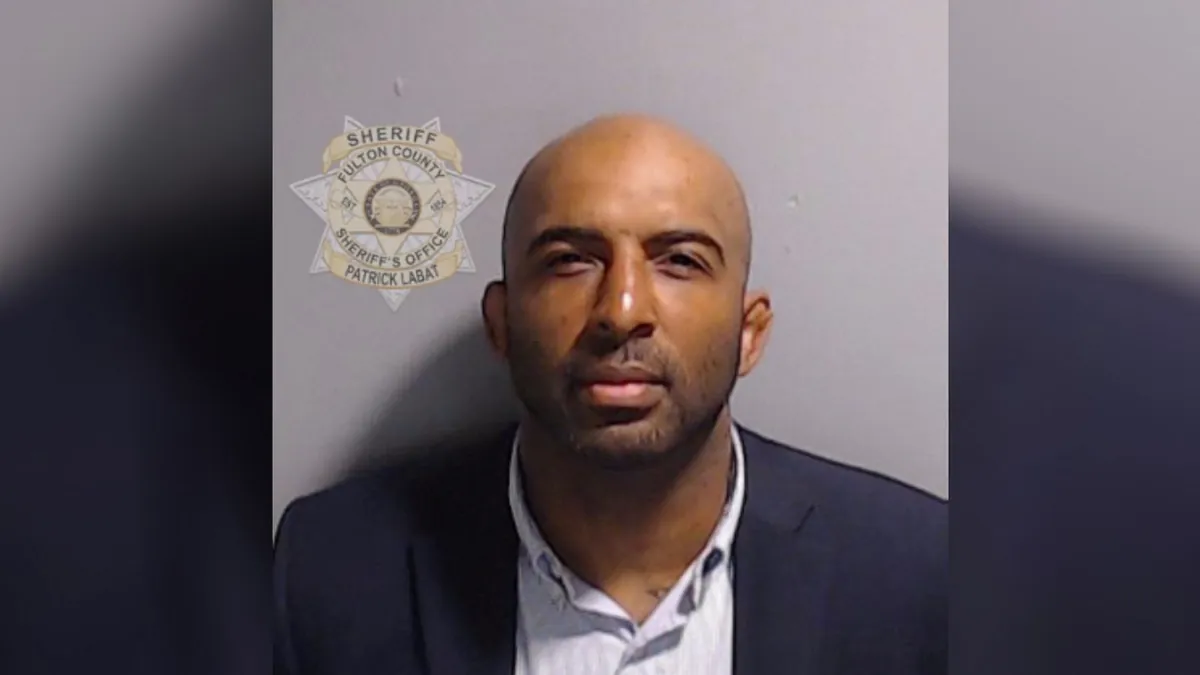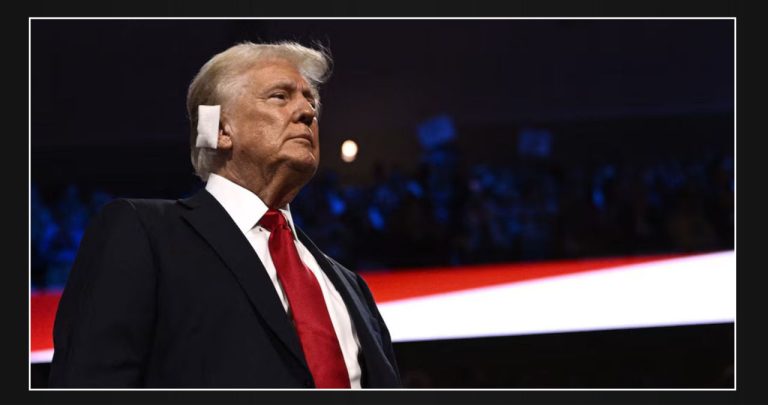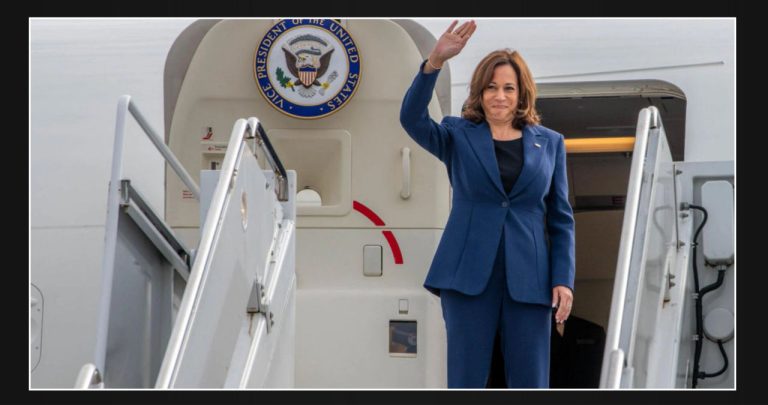On Tuesday, a judge in Fulton County denied the plea to revoke the bond of Harrison Floyd, a co-defendant in the Georgia election interference case of former President Donald Trump. The District Attorney, Fani Willis, pleaded for immediate detention of Floyd, but her request was rejected.
According to Judge Scott McAfee, Floyd breached the terms of his bond in multiple instances by tagging witnesses in the case through several tweets. However, the judge clarified that not every violation necessitates revocation. He stated that he will make changes to the bond conditions to prohibit any public comments regarding the witnesses in the future.
Willis made his first appearance in court to personally present his arguments related to the case during the hearing. In the summer, Floyd and 17 other defendants, including Trump, entered a not guilty plea to charges in a racketeering indictment. The indictment alleges that they made efforts to overturn the results of the 2020 presidential election in Georgia.
Nineteen defendants willingly surrendered for processing and were later released on bond. Kenneth Chesebro, Sidney Powell, Jena Ellis, and Scott Hall are among those who took plea deals in exchange for testifying against other defendants.
During the court hearing on Tuesday, Willis passionately argued that Floyd’s tweets, which were critical and disrespectful, constituted intimidation and a gross violation of the bond order that he had previously agreed to. Willis deemed Floyd’s behavior as “disgusting” and urged the court to take appropriate action in response.
According to Willis, despite being given the benefit of the doubt, the accused person failed to cooperate with the rules of the case. Instead, he went against three of the seven conditions stipulated in his bond agreement, which forbids the intimidation of any co-defendant or witness in the case and prohibits direct communication with any witnesses or defendants regarding the case’s facts. Willis added that the accused person’s actions amounted to spitting on the court and refusing to comply with the rules.
According to Willis, it is unjust to subject witnesses to such intimidation tactics, and there are significant repercussions for allowing defendants to get away with it. The judge was implored to take action and “remand him today.”
According to Floyd’s attorney, he requested the judge to not imprison Floyd. He further added that if the judge asked Floyd to “tone it down,” he would comply with the request.
According to Floyd’s lawyer, Georgia law has clear guidelines on what constitutes threats and intimidation, and none of the posts made by Floyd can be classified as such. As Floyd sat at the defense table, one of Willis’ top investigators read out Floyd’s tweets and the threatening comments posted below them during the hearing.
In his tweets, Floyd directly notified several witnesses involved in the case by tagging them. The individuals mentioned in his tweets include Ellis, Georgia Secretary of State Brad Raffensperger, and election official Gabriel Sterling. Floyd also tagged former election worker Ruby Freeman, who he is accused of trying to influence regarding the 2020 election, according to the DA’s indictment.
Part of what initiated Willis’ investigation was the phone conversation that Trump had with Raffensperger on January 3, 2021. During the call, Trump requested that Raffensperger locate the precise number of votes required for him to secure the victory in Georgia.
During the hearing, Sterling, who was a witness in the case, stated that he had seen Floyd’s posts that either tagged him or the Secretary of State’s office. However, he expressed his dislike towards the contents of those posts. Willis referred to one of Floyd’s tweets and asked him if he liked being called a piece of fecal matter.
“I’m sorry, ma’am,” Sterling replied.
During the hearing, Floyd’s lawyer inquired if Sterling had felt threatened by the posts. Sterling responded that it’s common to receive negative attention when you’re a public figure, and he never felt the need to report the tweets to law enforcement.
According to Freeman’s attorney, she took security measures due to Floyd’s posts about her. The attorney stated that Floyd’s posts caused a surge in online activity regarding Freeman.
According to Floyd’s attorney, there were no direct threats of violence found in any of Floyd’s posts. In August, Floyd entered a plea of not guilty to the three charges outlined in the indictment, one of which alleges that he attempted to influence witnesses. Unlike the other defendants in the case, he chose to surrender without first negotiating a bond package. However, due to pending charges in a separate case, Floyd was initially denied bond.
After posting bail, he was granted his freedom upon paying a bond of $100,000. The bond came with specific instructions pertaining to his co-defendants and witnesses.
Also Read:
- Trump once supported executing Yusef Salaam, who now serves on the NYC Council
- Trump’s 14th Amendment challenges may reach the Supreme Court
- Plea deals in Georgia pose a threat to Trump and his co-defendants
- Brazile: Lawyers’ Guilty Pleas in Georgia Case Spell



